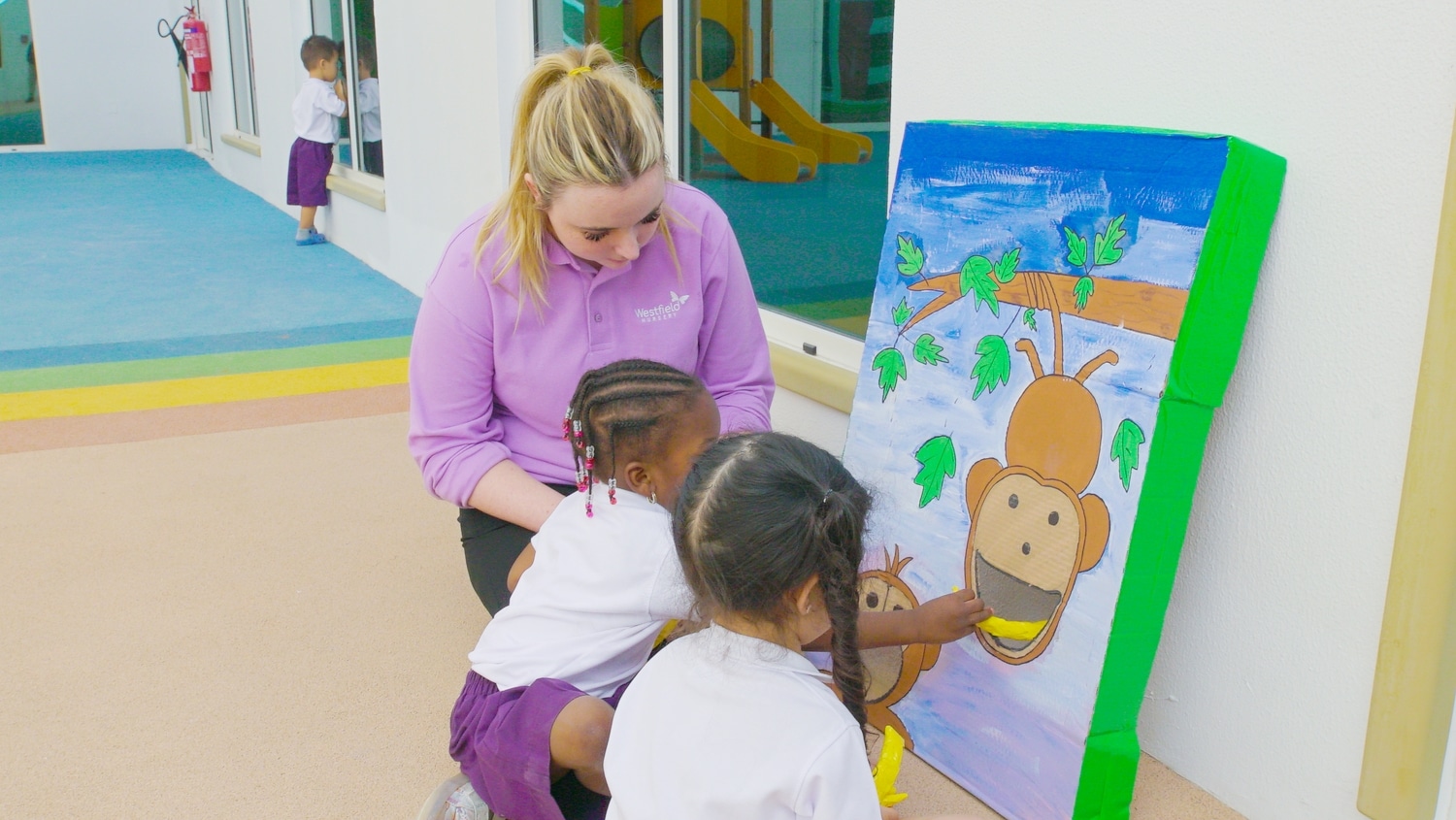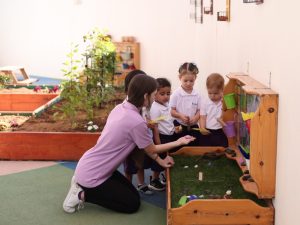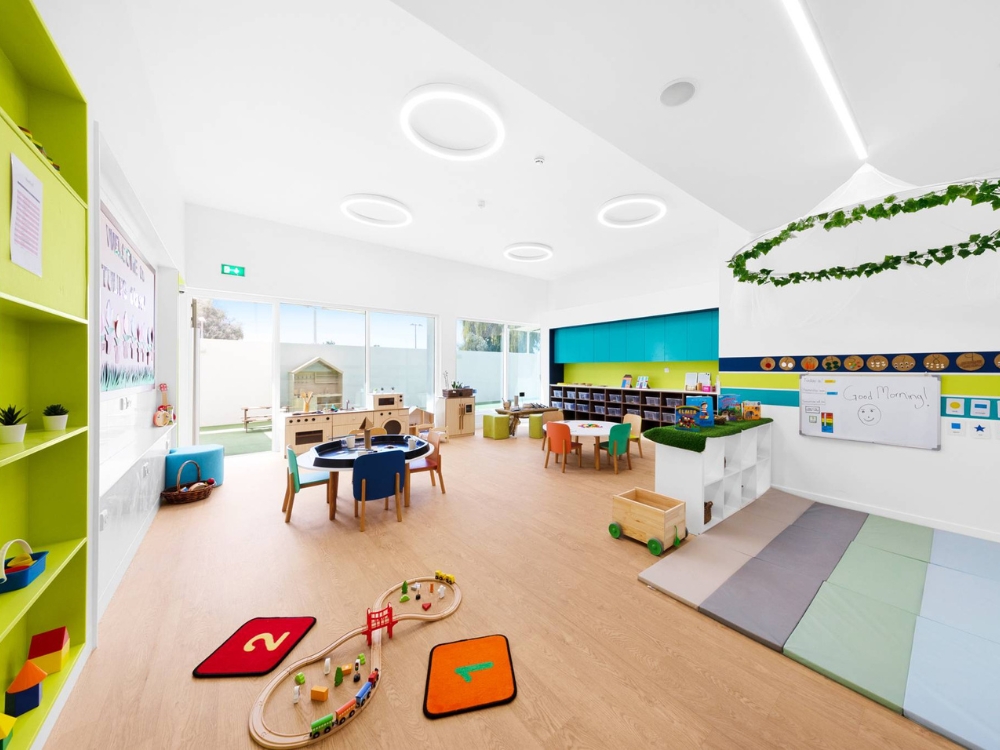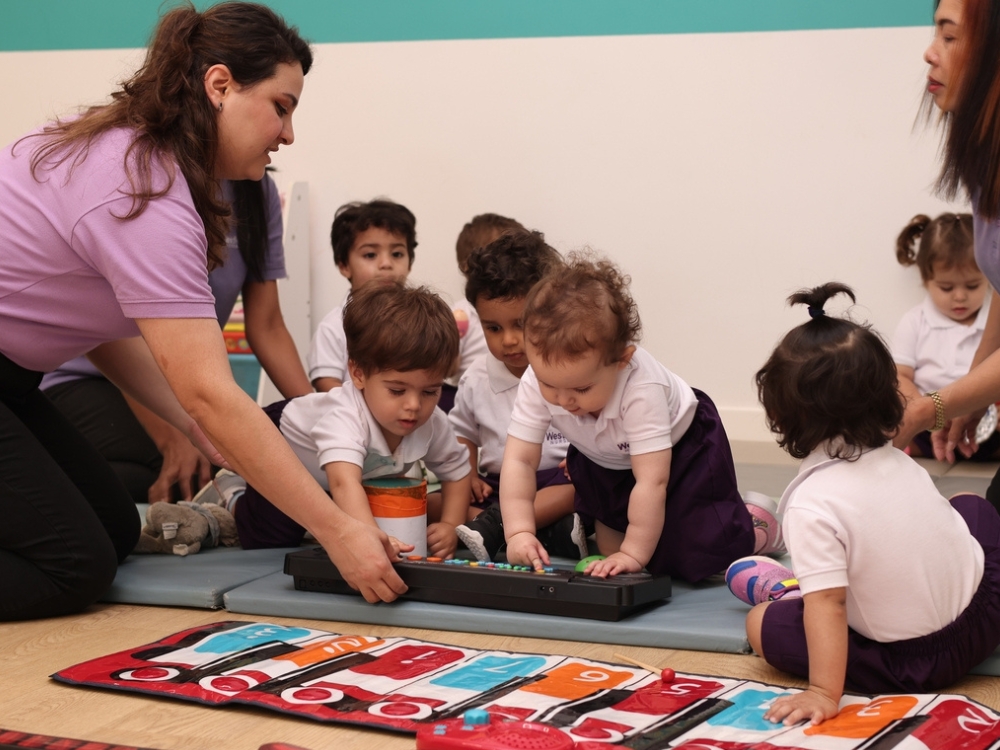
Explore the world of early learning centers in Dubai with a focus on Westfield Nursery located in Citywalk. Discover the benefits and opportunities available for your child’s educational journey at this renowned nursery in UAE. Whether you are searching for an early learning center near you or specifically interested in early learning programs, this blog post will provide valuable insights into what Westfield Nursery has to offer. Dive into a comprehensive overview of the facilities, curriculum, and approach to nurturing young minds at this esteemed institution. Join us as we delve into the exciting realm of early childhood education and uncover why Westfield Nursery, situated in the UAE, stands out among other options.
Understanding the Early Learning Landscape
Role in Child’s Development
Early learning centers, such as Westfield Nursery and those in Citywalk, are pivotal for a child’s growth. These centers provide a nurturing environment where children can develop crucial skills.
Early learning establishments offer various programs that focus on holistic development, including cognitive, social, and emotional aspects. Through interactive activities and play-based learning, children enhance their creativity and problem-solving abilities.
Parents often choose early learning centers like Early Learning Dubai in the UAE or ones located ‘near me’ to ensure their child receives quality education from an early age. These institutions lay the foundation for lifelong learning by fostering curiosity and a love for knowledge.
Variety of Options Available
The early learning landscape boasts diverse options tailored to meet individual needs. Parents can opt for traditional nurseries like Westfield Nursery or innovative educational approaches found in specialized centers.
Some parents prefer Montessori schools which emphasize independence and hands-on activities while others lean towards Reggio Emilia-inspired programs focusing on collaborative projects driven by children’s interests.
Each approach offers unique benefits that contribute to a child’s overall development. By understanding these options, parents can select the best fit based on their child’s personality and learning style.
Foundation for Academic Success
Research shows that participation in high-quality early education programs correlates with improved academic performance later in life. Early exposure to structured environments at places like nursery schools sets the stage for future success.
Children who attend reputable early learning centers tend to have better language skills, exhibit stronger social competencies, and demonstrate higher levels of school readiness compared to peers without such experiences.
Researching Different Approaches
To make informed decisions about their child’s education journey, parents should delve into various approaches within the early learning landscape. Conducting research helps them understand methodologies employed by different institutions.
For example, some nurseries follow play-based curriculums promoting exploration and discovery while others may adopt more structured lesson plans emphasizing literacy and numeracy skills from an early age.
Constant Evolution of Early Learning Landscape
The field of early childhood education is dynamic; it continuously evolves to cater to the changing needs of young learners effectively. Innovations such as integrating technology into teaching methods reflect this adaptability.
Educators at modern-day nurseries leverage digital tools not just as supplements but as integral components of the curriculum design process.
Moreover, there is a growing emphasis on inclusivity within these settings where diversity is celebrated through multicultural activities that enhance children’s awareness of different cultures.
Choosing the Right Early Learning Nursery
Location and Accessibility
When selecting an early learning nursery, it’s crucial to consider the proximity of the facility to your home or workplace. Ensure that the nursery is easily accessible, either by car or public transportation. A convenient location can simplify drop-off and pick-up routines for busy parents.
Finding a nursery close to your residence can save time on commuting daily. It allows for quick responses in case of emergencies or unexpected situations. For example, if you choose a nursery near your workplace, you could visit during breaks or lunchtime.
A centrally located early learning center may offer more opportunities for community engagement and field trips due to its accessibility. Proximity to parks, libraries, or other educational spots can enhance your child’s overall learning experience.
Staff Experience and Qualifications
The expertise of teachers and caregivers at an early learning nursery significantly impacts your child’s development. Look for educators with relevant qualifications in early childhood education. Experienced staff members are adept at handling various situations that may arise in a classroom setting.
Qualified professionals create a nurturing environment where children feel safe and supported while exploring new concepts through play-based activities. They understand different learning styles and can tailor their approach accordingly to meet each child’s needs effectively.
Experienced teachers possess valuable insights into child psychology, enabling them to foster emotional intelligence, social skills, and cognitive abilities in young learners successfully.
Researching Reputation
Before enrolling your child in an early learning nursery, conduct thorough research on its reputation within the community. Seek feedback from other parents who have had firsthand experience with the institution. Online reviews and testimonials can also provide valuable insights into the quality of care provided by the nursery.
A well-established nursery with a positive track record is more likely to offer high-quality programs tailored to promote holistic development among children. Consider visiting online forums or social media groups dedicated to parenting discussions for recommendations on reputable nurseries in your area.
Comparing Facilities
Visiting multiple nurseries gives you a comprehensive understanding of their facilities, curriculum offerings, and teaching methodologies before making a decision. Compare factors such as classroom size, outdoor play areas, hygiene standards, safety measures, and extracurricular activities available at each early learning center.
By touring different nurseries personally with your child if possible allows you both to get acquainted with their environments firsthand. Observing how teachers interact with students during class sessions provides insight into their teaching styles and aligns better fitment, ensuring compatibility between your child’s preferences, and those offered by the educational institution.
Comparing facilities helps identify which aspects are non-negotiable must-haves when choosing an early childcare provider.
Key Features of Top Early Learning Centers
Child-Centered Education
Early learning centers that prioritize child-centered education focus on the individual needs and interests of each child. They tailor their teaching methods to suit different learning styles, ensuring that every child receives personalized attention. This approach helps children develop a love for learning and encourages them to explore their creativity.
Top early learning centers create an environment where children feel safe and supported in their educational journey. By offering a nurturing setting, young learners can thrive both academically and emotionally. This sense of security allows children to build confidence, form positive relationships with peers, and develop essential social skills.
Quality early learning centers understand the importance of having well-trained staff members who are dedicated to supporting children’s growth and development. Educators in these centers possess the necessary qualifications and experience to provide high-quality early childhood education. Their passion for teaching is reflected in the way they interact with students and create engaging learning experiences.
Balanced Curriculum for Holistic Development
A key feature of top early learning centers is their commitment to providing a balanced curriculum that promotes holistic development. These curricula go beyond academic subjects to include activities that enhance physical, emotional, cognitive, and social skills in young children. For example:
- Incorporating music and movement classes for developing coordination.
- Offering outdoor play areas for physical exercise.
- Including art projects to foster creativity.
- Organizing group activities to promote teamwork.
By offering a diverse range of experiences, early learning centers ensure that children receive a comprehensive education that prepares them for future academic success while also nurturing their overall well-being.
Excellent Facilities and Resources
Top early learning centers invest in excellent facilities and resources to support effective teaching and student engagement. These may include state-of-the-art classrooms equipped with interactive whiteboards or tablets for interactive lessons. Additionally:
- Libraries stocked with age-appropriate books encourage reading from an early age.
- Science labs enable hands-on exploration through experiments.
- Outdoor playgrounds provide space for physical activity. These facilities not only enhance the educational experience but also create an enriching environment where children can learn through exploration.
The Role of Play in Early Childhood Education
Importance of Play in Child Development
 Play is crucial for children’s growth, impacting their cognitive, social, and emotional well-being. Through play activities, kids can naturally explore, experiment, and enhance problem-solving skills. This hands-on approach fosters creativity, imagination, and critical thinking abilities.
Play is crucial for children’s growth, impacting their cognitive, social, and emotional well-being. Through play activities, kids can naturally explore, experiment, and enhance problem-solving skills. This hands-on approach fosters creativity, imagination, and critical thinking abilities.
Playing allows children to engage actively with their environment and peers while developing essential life skills. It provides a platform for young learners to make sense of the world around them through interaction and experimentation. Moreover, play-based learning not only educates but also motivates children to participate wholeheartedly in the learning process.
Benefits of Incorporating Play-Based Learning
- Pros:
- Encourages holistic development
- Enhances problem-solving skills
- Promotes creativity and imagination
Early childhood educators leverage play as a powerful tool to facilitate learning across various domains such as language development, mathematical concepts, social interactions, and emotional regulation. By integrating play into educational settings like early learning centers or nurseries such as Westfield Nursery or those located near the Citywalk Dubai area; educators create an enriching environment where children can thrive.
Implementing Play-Based Learning Strategies
In early learning environments like nurseries or preschools that prioritize play-based education:
- Create diverse play areas that cater to different interests.
- Offer open-ended materials that encourage exploration.
- Facilitate group activities that promote collaboration among children.
- Provide guidance while allowing freedom for independent discovery during playtime.
Creating a Nurturing Environment for Young Learners
Emotional Support and Security
 Early learning centers strive to create a nurturing environment that offers emotional support and security for young children. This safe space allows kids to explore, learn, and grow without fear. Teachers play a crucial role in providing comfort and reassurance to help children feel secure.
Early learning centers strive to create a nurturing environment that offers emotional support and security for young children. This safe space allows kids to explore, learn, and grow without fear. Teachers play a crucial role in providing comfort and reassurance to help children feel secure.
A nurturing environment at an early learning nursery ensures that every child feels valued, loved, and cared for. By fostering positive relationships with teachers, peers, and families, children develop a sense of belonging and emotional stability. This supportive atmosphere encourages kids to express themselves freely.
Nurturing environments in nursery Citywalk settings focus on promoting independence among young learners. Encouraging self-confidence helps children tackle challenges with resilience. When kids feel supported in their endeavors, they are more likely to take risks, try new things, and develop essential life skills.
Inclusivity and Belonging
Inclusive practices at early learning centers like Westfield Nursery emphasize the importance of creating an environment where all children feel included regardless of their backgrounds or abilities. This fosters a sense of belonging among the little ones as they interact with diverse peers.
Teachers play a vital role in ensuring that each child is welcomed into the learning community with open arms. By celebrating differences and promoting respect for others’ perspectives, early learning centers cultivate an inclusive culture where every child’s unique qualities are appreciated.
Inclusivity not only benefits individual children but also enriches the overall educational experience by exposing young learners to various cultures, traditions, languages, and ways of thinking. It broadens their horizons from an early age while instilling values of empathy and acceptance.
Love for Learning
At its core, creating a nurturing environment in early childhood education aims to instill a lifelong love for learning in young minds. Early learning experiences should be engaging, stimulating creativity through play-based activities that spark curiosity about the world around them.
- Promotes independence
- Fosters inclusivity
- Cultivates love for learning
By prioritizing emotional well-being alongside academic growth, early learning centers set the foundation for future success by nurturing happy, confident learners who are eager to explore, discover, and embrace new challenges.
Staffing Considerations in Early Learning Centers
Importance of Qualified Staff
Having qualified and experienced staff members is crucial for providing high-quality education in early learning centers. These individuals play a significant role in shaping the educational experiences of young learners.
Quality early learning centers prioritize hiring staff with appropriate qualifications and experience to ensure they can effectively support children’s development.
Staff members who possess relevant qualifications are better equipped to create engaging learning environments that cater to the diverse needs of young children.
Significance of Low Turnover Rates
Centers with low staff turnover rates often indicate a positive work environment where employees feel valued, supported, and motivated. This stability benefits both staff and students alike.
Low turnover rates contribute to consistency in caregiving, allowing children to form secure attachments with their educators over time.
When teachers stay at a center for an extended period, they develop deeper connections with the children and families, fostering a sense of community within the early learning environment.
Maintaining Adequate Staff-to-Child Ratios
Ensuring adequate staff-to-child ratios is essential in early learning centers as it directly impacts the quality of care and education provided. When there are enough adults present, each child receives individual attention and supervision.
Balanced ratios enable educators to address the unique needs of each child effectively while maintaining a safe and supportive learning environment.
Exploring the Curriculum and Learning Approaches
Various Curriculum Frameworks
 Early learning centers often adopt diverse curriculum frameworks to guide their teaching methods. Some popular approaches include Montessori, Reggio Emilia, and play-based learning. Each framework emphasizes unique aspects of a child’s development.
Early learning centers often adopt diverse curriculum frameworks to guide their teaching methods. Some popular approaches include Montessori, Reggio Emilia, and play-based learning. Each framework emphasizes unique aspects of a child’s development.
When choosing an early learning center, it is crucial to research the curriculum approach they follow. For instance, if your child thrives in hands-on activities, a play-based curriculum might be ideal. Understanding these approaches can help align your child’s interests with the nursery’s teaching style.
Holistic Development Focus
An essential aspect of any early learning curriculum is its focus on holistic development across various domains. This includes cognitive, social-emotional, physical, and language development. A well-rounded curriculum ensures that children receive a comprehensive education.
Look for a nursery that prioritizes holistic growth through a balanced curriculum. For example, if your child enjoys exploring nature during walks or outdoor activities like those offered at Westfield Nursery or Nursery Citywalk in Dubai can enhance their physical development while fostering an appreciation for the environment.
Hands-On Learning Opportunities
One key feature to consider when evaluating an early learning center’s curriculum is the availability of hands-on learning opportunities and active engagement strategies. These experiences allow children to explore concepts through interactive activities rather than passive instruction.
Ensure that the chosen nursery provides ample opportunities for active engagement, such as sensory play stations or art corners where children can express their creativity freely. Engaging in such activities not only enhances their cognitive skills but also fosters a love for learning from an early age.
Child-Initiated Learning at Leading Nurseries
Promotes Independence
 Child-initiated learning empowers little ones to steer their educational journey, fostering independence and self-reliance. This approach encourages children to make choices about what they want to learn, promoting autonomy.
Child-initiated learning empowers little ones to steer their educational journey, fostering independence and self-reliance. This approach encourages children to make choices about what they want to learn, promoting autonomy.
Encouraging independence from an early age can have long-lasting benefits for a child’s development. By allowing them to take charge of their learning experiences, nurseries help build confidence and decision-making skills in young learners.
Leading nurseries prioritize child-initiated learning as it nurtures a sense of responsibility and ownership in children. This approach instills a love for learning while nurturing essential life skills like problem-solving and critical thinking.
Fosters Curiosity and Exploration
Child-initiated learning sparks curiosity in children, driving them to explore the world around them with wonder and excitement. Nurseries create environments that stimulate this natural curiosity by providing hands-on activities and open-ended materials.
Through exploration, children develop a deeper understanding of concepts through firsthand experiences. For example, at Westfield Nursery, children may engage in sensory play activities like exploring different textures or experimenting with water play.
By fostering exploration through child-initiated learning, nurseries lay the foundation for lifelong learners who are curious about the world around them. This approach not only enhances academic knowledge but also cultivates a passion for discovery.
Supports Individual Interests
One significant advantage of child-initiated learning is its ability to cater to the unique interests and strengths of each child. Unlike traditional teaching methods that follow a set curriculum, this approach allows nurture schools to tailor activities based on individual preferences.
For instance, if a child shows interest in animals during free playtime at Nursery City Walk Dubai, teachers can incorporate animal-themed books or toys into their learning environment. This personalized approach ensures that every child’s needs are met effectively.
Evaluating Facilities and Environments at Nurseries
Clean, Safe, and Well-Maintained Facilities
When visiting early learning centers or nurseries, it is crucial to observe the cleanliness, safety measures, and overall maintenance of the facilities. Nurseries should prioritize hygiene to ensure a healthy environment for children. Safety features like secure gates and childproofing are essential to prevent accidents.
Nurseries must maintain a well-kept space that is conducive to children’s growth and development. A tidy environment not only promotes good health but also creates a welcoming atmosphere for both children and parents. When facilities are clean and organized, it reflects positively on the nursery’s commitment to providing quality care.
Look out for maintenance practices such as regular cleaning schedules, proper waste disposal methods, and well-functioning amenities like toilets and sinks in early learning centers. These aspects contribute significantly to creating a safe and comfortable setting where children can thrive.
Spacious Outdoor Play Areas
 Outdoor play areas in nurseries play a pivotal role in promoting physical activity, social interaction, and sensory experiences among young learners. When evaluating these spaces at an early learning center or nursery near you, consider factors like size, and variety of equipment available for different age groups.
Outdoor play areas in nurseries play a pivotal role in promoting physical activity, social interaction, and sensory experiences among young learners. When evaluating these spaces at an early learning center or nursery near you, consider factors like size, and variety of equipment available for different age groups.
A well-designed outdoor area should offer ample space for running around freely while ensuring the presence of engaging activities like climbing structures or sandboxes. The equipment provided should be suitable for the developmental stages of children attending the nursery.
By offering diverse opportunities for exploration through nature-inspired elements or interactive installations outdoors,** nurseries** encourage holistic development among their students.
Organized Indoor Spaces
Indoor environments within nurseries should be thoughtfully arranged to facilitate various learning activities while maintaining a warm ambiance that fosters creativity and imagination in young minds.
The layout of indoor spaces plays an integral role in supporting educational endeavors by providing designated areas for different types of activities such as reading corners with access to books or art stations equipped with creative materials like crayons or paints.
When assessing indoor settings at an early learning center or nursery nearby, look out for arrangements that promote independence, and collaboration among peers through shared workspaces while still allowing room flexibility based on changing needs throughout the day.
Availability of Resources
Resources including books, toys, and educational materials are fundamental components contributing significantly towards enriching the educational experience offered by nurseries.
- Ensure there is diversity in resources available catering to various interests.
- Look out for high-quality toys made from safe materials without sharp edges.
- Check if there is a sufficient quantity so all students can engage simultaneously.
Factors to Consider When Selecting a Nursery Location
Proximity to Home or Workplace
Choosing an early learning center close to your residence or office can make daily drop-offs and pick-ups more manageable. It ensures that you can quickly reach the nursery in case of emergencies or unexpected situations. For example, selecting a nursery near Dubai Marina if you reside there can save commuting time.
Selecting a nursery Citywalk because it is conveniently located near your workplace may allow for easier coordination between work hours and nursery timings. This proximity could also enable parents to visit their child during breaks, fostering a stronger connection with the child’s caregivers.
Opting for an early learning near-me facility offers convenience as it reduces travel time, making hectic mornings smoother for both parents and children. Being closer allows parents to participate in school events and activities more actively.
Safety and Security
Prioritizing safety when choosing an early learning nursery is crucial for peace of mind. Ensure that the location has secure entry points, fenced outdoor play areas, surveillance cameras, and strict visitor policies. A safe environment fosters trust between parents and childcare providers.
When considering a Westfield nursery, look into safety measures such as fire exits, emergency procedures, staff training on first aid/CPR, and background checks on employees. These aspects contribute significantly to creating a secure space where children can thrive without unnecessary risks.
A nursery should have stringent security protocols in place to prevent unauthorized access within the premises. Parents must feel confident that their child is protected while under the care of the institution.
Transportation Accessibility
Checking transportation options available near an early learning center is essential for families reliant on public transport or school buses. Accessible bus stops or metro stations nearby facilitate smooth commutes for working parents dropping off or picking up their children daily.
Choosing a location like an easily accessible Westfield nursery, situated along major roads with ample parking spaces nearby eases traffic congestion during peak hours when many parents are arriving or departing from the facility.
For those considering enrolling at a specific nursery Citywalk, verifying transportation availability ensures that families have multiple convenient options for getting their child safely to and from school every day.
Unleashing Potential Through Age-Appropriate Learning
Building on Existing Knowledge and Skills
Age-appropriate learning is crucial in early learning centers like Westfield Nursery, as it ensures that children are appropriately challenged based on their developmental stage. By tailoring activities to match each child’s level, education becomes more effective. For example, if a child is already familiar with basic shapes, they can progress to more complex geometric concepts.
When children are engaged in tasks that align with their existing knowledge and skills, they feel a sense of accomplishment. This positive reinforcement encourages them to tackle new challenges confidently. At nursery Citywalk, educators often observe children mastering certain skills before introducing advanced concepts. This gradual progression helps children develop a strong foundation for future learning.
In an age-appropriate setting, children have the opportunity to explore topics further instead of merely repeating what they already know. For instance, at an early learning center in Dubai, if a child shows interest in dinosaurs, teachers can incorporate different subjects like language arts or math into dinosaur-themed activities. This interdisciplinary approach not only makes learning more engaging but also broadens the child’s understanding of various subjects.
Promoting Social-Emotional Development
In addition to academic growth, age-appropriate learning plays a significant role in nurturing social-emotional development among young learners. At an early learning nursery near me or any other location, group activities and interactions are tailored to help children understand emotions and build relationships effectively. For example, during playtime at Westfield Nursery, educators guide children through conflict resolution strategies when disagreements arise.
By providing opportunities for collaboration and communication within the classroom environment, early childhood educators support the development of essential social skills such as empathy and teamwork. These experiences lay the groundwork for healthy relationships later in life by teaching children how to express themselves positively while respecting others’ perspectives.
Moreover, exposure to diverse social situations allows young learners to learn about cultural differences and appreciate individual uniqueness from an early age. When attending an early learning center that values diversity like those found in UAE settings such as Citywalk nurseries or others nearby me locations offer enriching experiences where students learn about inclusivity firsthand through interactions with peers from various backgrounds.
Establishing Academic Foundations for Future Success
The significance of age-appropriate education extends beyond current skill-building; it establishes a sturdy base for future academic achievements among young learners. Early exposure to foundational concepts such as numbers and letters at nurseries like Westfield sets the stage for advanced learning resources introduced later on during formal schooling years.
1: Age-appropriate education fosters engagement. 2: Tailored activities enhance motivation. 3: Gradual progression supports mastery. 4: Interdisciplinary approaches promote holistic understanding. 5: Group activities foster social skills development.
- Encourage exploration based on existing knowledge.
- Integrate diverse subjects into core interests.
- Provide guidance on emotional regulation techniques during interactions.
- Offer collaborative opportunities emphasizing teamwork.
- Create inclusive environments celebrating cultural diversity.
Summary
The exploration of early learning centers and nurseries has shed light on the critical factors influencing a child’s educational journey. From understanding the landscape to evaluating facilities and learning approaches, each aspect plays a pivotal role in shaping a nurturing environment for young learners. The emphasis on child-initiated learning, coupled with age-appropriate approaches, underscores the significance of tailored educational experiences in fostering holistic development.
Considering these insights, individuals seeking early learning opportunities are encouraged to delve deeper into the nuances of selecting a nursery. By prioritizing factors such as curriculum, staff expertise, and environmental considerations, parents can make informed decisions that align with their child’s unique needs. Ultimately, investing time and effort into choosing the right early learning center sets a solid foundation for a child’s future growth and success.
Frequently Asked Questions
Is early childhood education essential for a child’s development?
Early childhood education plays a crucial role in shaping a child’s cognitive, social, and emotional skills. It provides a strong foundation for future learning and helps children thrive academically and socially.
How can I evaluate the quality of a nursery school in the UAE?
Assess the qualifications and experience of teachers, observe classroom interactions, check accreditation status, review curriculum details, visit the facilities in person, inquire about safety measures, and seek parent reviews or testimonials to gauge overall satisfaction.
What are some key features to look for in a top early learning center?
Look for an engaging curriculum tailored to different age groups, experienced and qualified educators who prioritize individualized attention, safe and stimulating environments that encourage exploration and creativity, and opportunities for outdoor play and social interaction among children.
How does play contribute to early childhood education?
Play is essential for cognitive development as it enhances problem-solving skills, and fosters creativity and imagination. Through play activities like building blocks or pretend play scenarios, children learn important social skills such as cooperation, and communication while having fun.
Why is creating a nurturing environment important in early learning centers?
A nurturing environment promotes emotional well-being by providing care & support which aids in building trust with caregivers/teachers. Children feel secure & valued leading to better engagement with academic activities and fostering holistic growth at this crucial developmental stage.
[ratemypost]
Discover the Joy of Learning
Book a tour today to witness firsthand the engaging learning spaces, well-equipped classrooms, and safe surroundings that make Westfield Nursery the top choice for parents in Dubai.


